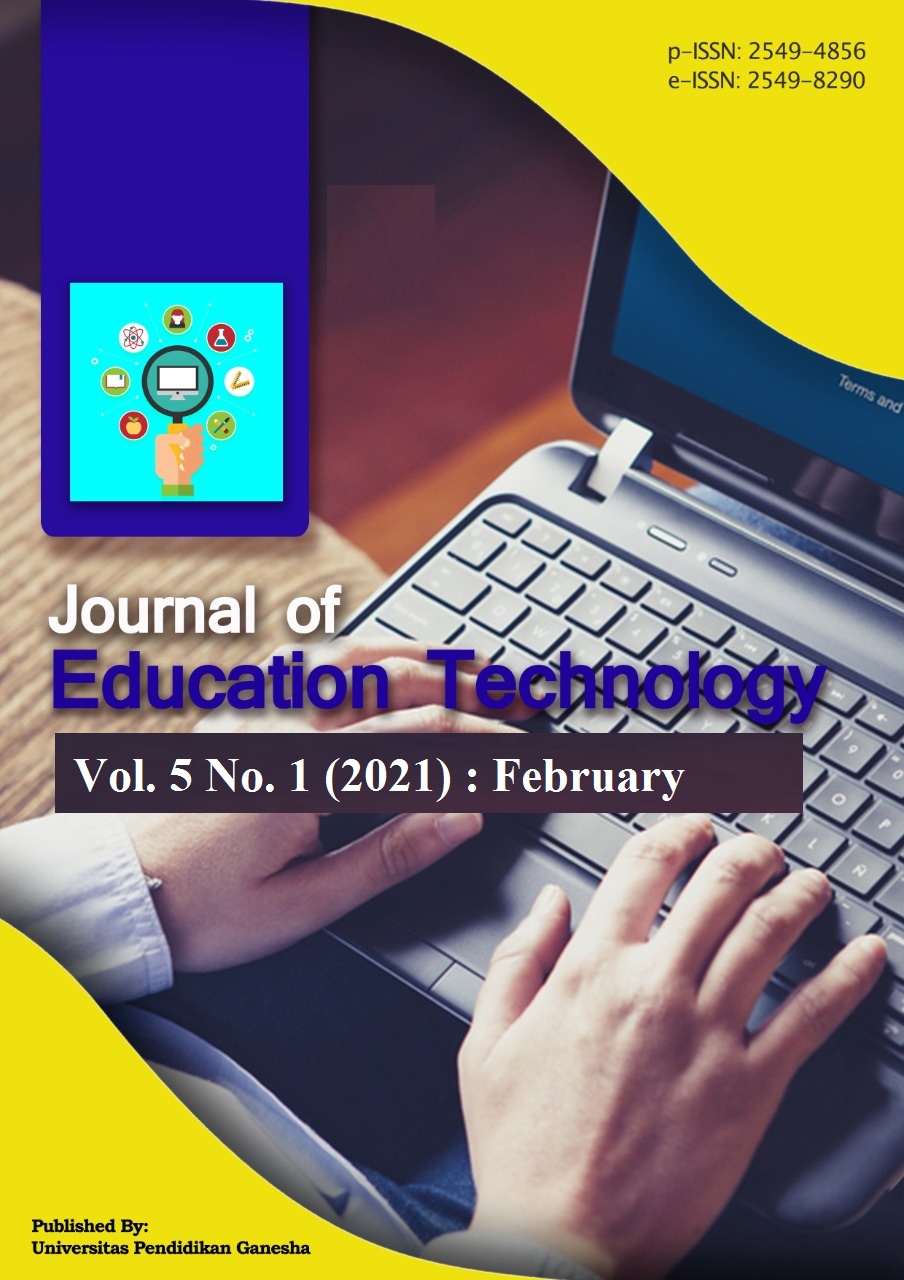Analysis of Problem-Solving Skills of Vocational Teacher Candidates in Terms of Several Variables
DOI:
https://doi.org/10.23887/jet.v5i1.33624Abstract
The learning strategy applied so far is still not optimal to develop students' thinking skills. Learning that includes problem solving skills to students as teacher candidates have not yet substantially implemented. This research aims to find learning methods that can improve students' thinking skills as teacher candidates, especially problem solving skills. This research was conducted using a descriptive type of general survey method. Using Slovin formula and 5% error, a sample of 340 students was proportionally selected from 2289 students as a population. Data collection using a problem solving skills questionnaire that rearranged based on the concept of the simplexity thinking process Basadur. However, this study shows that there are significant differences (p<0.05) from problem solving skills based on the level of satisfaction of teacher candidates to the learning methods implemented by lecturers. However, there were no significant differences in problem-solving skills based on course, gender, middle school background, and year of admission (p>0.05) after analyzed with one-way ANOVA. This study shows that satisfaction with learning is in line with the problem-solving skills of teacher candidates. Therefore, it is important for institutions that produce vocational teacher candidates to teach problem solving skills and maintain their level of satisfaction in the learning process.
References
Anwar, M., Jalinus, N., dan Pardjono. (2017). The learning model development of higher order thinking on electronics system subject. Regionalization and Harmonization in TVET – Abdullah et al. (Eds). Taylor & Francis Group, London, ISBN 978-1-138-05419-6.
Demirel, M., Askin, İ., dan Yağcı, Esed. (2014). An investigation of teacher candidates’ metacognitive skills. Procedia - Social and Behavioral Sciences 174, 1521 – 1528.
Doyle, Alison. (2019). Problem Solving Skills: Definition, Steps, and Examples. Diambil dari https://www.thebalancecareers.com/problem-solving-skills-with-examples-2063764.
M. Binkley, O. Erstad, J. Herman, S. Raizen, M. Ripley, M. Miller-Ricci, M. Rumble, (2012). Defining Twenty-First Century Skills. In P. Griffin, B. McGaw, & E. Care (Eds.), Assessment and Teaching of 21st Century Skills, Springer Netherlands, 17-66.
Mayer, R. E. (2010). Problem Solving and Reasoning. International Encyclopedia of Education, 273–278.
Mayer, R.E. (2013). Problem Solving, The Oxford Handbook of Cognitive Psychology, Oxford University Press, UK.
Mills, Kate & Kim, Helyn. (2017). Teaching problem solving: let students get “stuck” and “unstuck”. Diambil dari https://www.brookings.edu/blog/education-plus-development/ 2017/10/31/teaching-problem-solving-let-students-get-stuck-and-unstuck/.
Yenice, N., Ozden, B., & Evren, B. (2012). Examining of problem solving skills according to different variables for science teachers candidates. Procedia - Social and Behavioral Sciences 46, 3880 – 3884.
Downloads
Published
How to Cite
Issue
Section
License
Authors who publish with the Journal of Education Technology agree to the following terms:
- Authors retain copyright and grant the journal the right of first publication with the work simultaneously licensed under a Creative Commons Attribution License (CC BY-SA 4.0) that allows others to share the work with an acknowledgment of the work's authorship and initial publication in this journal.
- Authors are able to enter into separate, additional contractual arrangements for the non-exclusive distribution of the journal's published version of the work (e.g., post it to an institutional repository or publish it in a book), with an acknowledgment of its initial publication in this journal.
- Authors are permitted and encouraged to post their work online (e.g., in institutional repositories or on their website) prior to and during the submission process, as it can lead to productive exchanges, as well as earlier and greater citation of published work. (See The Effect of Open Access)
















